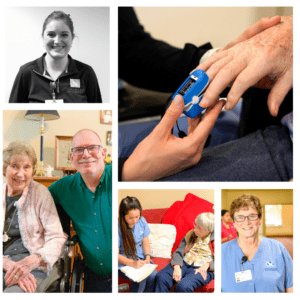While there is no cure for AD, there are treatments designed to help mitigate the symptoms and progression of the disease. The treatments include non-medicated therapy programs and medications used to treat several symptoms and try to slow the progression of AD.
Most therapy programs and medications used to treat AD are prescribed by doctors. There are excercises and other general at-home activities patients can do to improve overall health, but they should be approved by a doctor.
Medication Treatments for Alzheimer’s
The following two drugs have been approved for medical use in treating symptoms associated with AD. There are other medications available to treat AD, but these medications seem to be prescribed more often.
While there is no cure for AD or even a way to reverse the damage it causes, these medications can help mitigate harmful symptoms and possibly slow the progression of the disease. Both of the following drugs are primarily used to treat dementia symptoms that can occur due to the progression of AD.
Memantine
Memantine is a drug used to treat symptoms of dementia by decreasing some abnormal brain activities. Memantine has been effective in slowing the loss of cognitive functions and memory loss.
If a doctor prescribes Memantine for a patient, there are several side effects to be aware of:
-
Confusion
-
Aggression
-
Depression
-
Headache
-
Sleepiness
Donepezil
Donepezil is a drug used to treat symptoms of dementia by increasing some brain functions by releasing more specific brain chemicals. Donepezil has been effective in treating memory loss and general cognitive function. Donepezil focuses on improving brain function to allow speech and verbal communication (among other things) to stay clear.
If a doctor prescribes Donepezil for a patient, there are several side effects to be aware of:
-
Urinary incontinence
-
Joint pain, swelling, or stiffness
-
Pain
-
Excessive tiredness
-
Difficulty falling asleep or staying asleep
-
Depression
-
Confusion
-
Changes in behavior or mood
-
Hallucinations (seeing things or hearing voices that do not exist)
Charlin Health Services
At Charlin Health Services we pride ourselves on honor, integrity, excellence, compassion, dignity, and trust. If you have any needs or questions about health services, hospice care, or other medical needs, please send us an email or give us a call.
About Our Alzheimer’s Expert
Emilynn Bryce BSN, RN is the hospice director of nursing at Charlin Healthcare Services. Emilynn received a BS in registered nursing from St. Louis University. After graduating, Emilynn worked as a registered nurse at St. Luke’s Hospital in Chesterfield, MO. Emilynn has been with Charlin since 2018.
Listen to the full Charlin Alzheimer’s podcast here.



